General questions are probably the most common and easiest way to ask a question in English.
In some languages, we can ask a question using only interrogative intonation. In English, it is not enough. In English, we need to know and use the question word order.
We ask a General Question with the main goal of getting a positive or negative answer.
Do you understand? 🙂
Word order in general questions
Word order in general questions is important.
Do you read books?
Does he read books?
It means we put the auxiliary verb first. The auxiliary verb tells us that this is an interrogative sentence. We immediately understand that this is a question, even if we do not see a question mark or do not hear interrogative intonation.
Auxiliary verbs in general questions
The auxiliary verb is a necessary element of general questions in English.
Remember that auxiliary verbs are different from regular verbs.
A common verb like “read” shows an action. An auxiliary verb for example “do”, “will”, “have” performs only an auxiliary function.
An auxiliary verb has no meaning. An auxiliary verb only indicates the tense of the verb and the fact that it is a question.
| Present simple | do \ does |
| Past simple | did |
| Future Simple | will |
| Present continuous | is \ am \ are |
| Present perfect | have \ has |
Take a look at the examples of the most popular auxiliary verbs we use to build general questions:
Present simple: Do \ does
Do you like my car?
Does he work?
Past simple: Did
Did you eat something?
Did he give you pills?
Future Simple: Will
Will she ever learn to shut a door?
Will I make it, doctor?
Present continuous: Is \ am \ are
Am I crazy for thinking that?
Are you charging me for this?
Present perfect: Have \ has
Have we checked her social feeds?
Has he been in trouble before?
General questions in Present Simple with do/does
To form a general question in Present Simple, we need the auxiliary verb do.
This verb in Present Simple has a peculiarity. Do changes its form depending on who is the subject in the sentence.
We use do for all persons except the third person singular he, she, it.
For the third person singular, we add the -es ending to the verb do.
do + es = does
Thus, we use:
do for all persons (I, we, they, you) except the third person singular (he, she, it).
does for the third person singular (he, she, it).
- Do I …
- Does he …
- Does she …
- Does it …
- Do we …
- Do they …
- Do you …
Do we believe you?
Does he work all night?
Verb to be
The verb to be is special. To form a question the verb to be does not need any auxiliary verbs. To be forms questions on its own.
We use the verb to be to indicate the location or condition of someone or something:
I am a good boy.
He is at home.
They are my friends.
We use general questions with the verb to be to find out, clarify the location or condition of someone or something.
Am I a good boy?
Is he at home?
Are they my friends?
The verb to be has different forms, you must know these forms to use to be correctly in general questions. These forms are:
Present forms of the verb to be:
- I am
- He is
- She is
- It is
- We are
- They are
- You are
Past forms of the verb to be:
- I was
- He was
- She was
- It was
- We were
- They were
- You were
Future forms of the verb to be.
- I will be
- He will be
- She will be
- It will be
- We will be
- They will be
- You will be
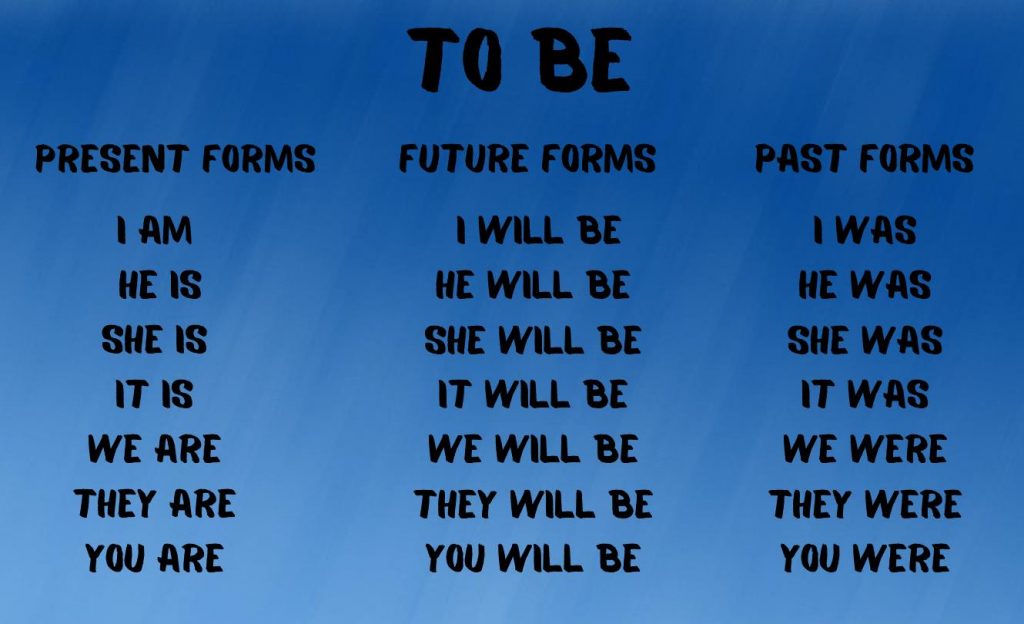
To ask a general question with the verb to be, we put the right form of the verb to be in the first place in the sentence.
For example, look at this affirmative sentence with the verb to be:
My brother is a writer.
To form a question out of this sentence, we simply put the verb to be first:
to be (Am, Are, Was, Will be) + Subject (I, you, we people) + action / place / state + rest of the sentence
Is my brother a writer?
Are you in Paris?
Is this car blue?
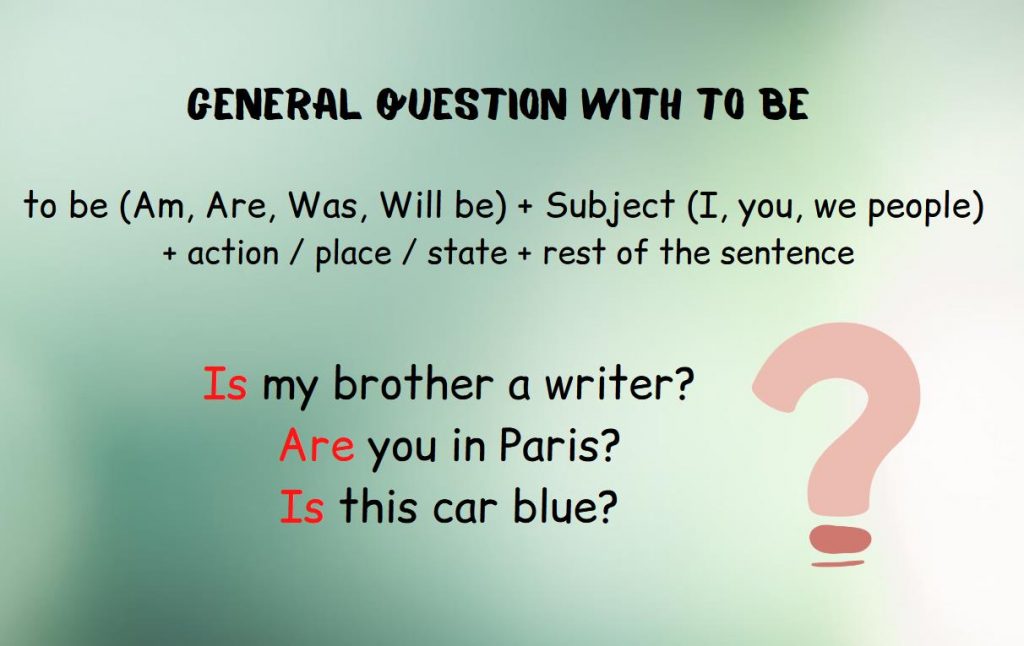
Modal verbs
We form general questions with modal verbs differently from regular verbs.
Modal verbs in English are a special category of verbs. We do not use auxiliary verbs with modal verbs.
Modal verbs can play as auxiliary verbs for themselves. In this sense, modal verbs are similar to the verb to be.
To see how modal verbs differ from common verbs let’s take the verb “read” as an example. To ask a question with the verb “read” we need the auxiliary verb do:
Do you like reading books?
Now let’s take the modal verb Can as an example. We do not use auxiliary verbs to ask a question with Can.
Can you swim?
Can she drive a car?
To ask a question with a modal verb, we put the modal verb first before the subject. We do the same thing that we do with the verb to be.
This is because modal verbs do not express any action. Modal verbs express modality, opinion, and subjective attitude of the speakers:
I can read.
The formula of a general question with a modal verb looks like this:
Modal Verb (Can, Should, Must) + Subject (I, You, We, Dog, Car) + Main Verb (Jump, Read, Be) + rest of the sentence
Can you accept me as I am?
Should we send them something back?

How to answer a general question
Of course, you can answer a general question as you like! In order to answer a question, you can even say nothing and just smile or wave your hand away. Or be silent altogether 🙂
But if you want to answer general questions correctly, you must know some rules.
An answer to a general question can be:
- Short answer
- Full answer
Also, an answer can be positive or negative.
Short positive answer
To form a short positive answer, we use the following scheme:
Yes + Subject (I, you, We, They, People) + auxiliary/modal verb/verb to be (Do, Can, Are)
Question: Do you like reading?
Answer: Yes, I do.Question: Could he help me?
Answer: Yes he could.
Short negative answer
To form a short negative answer, we use this scheme:
No + Subject (I, you, We, They, People) + auxiliary / modal verb / verb to be (Do, Can, Are) + not
Question: Must we really help him?
Answer: No we must not.Question: Did she speak?
Answer: No she didn’t.
Full positive answer
A full affirmative answer is like an affirmative sentence with the word YES at the beginning:
Yes + Subject (I, you, We, They, People) + auxiliary/modal verb / to be (Do, Can, Are) + part of the question in the affirmative
Question: Can you sing?
Answer: Yes I can sing.Question: Does she work here?
Answer: Yes she does work here.
Full negative answer
A full negative answer is like a negative sentence with the word NO at the beginning:
No + Subject (I, you, We, They, People) + auxiliary verb / modal verb / to be verb (Do, Can, Are) + part of the question in negative form
Question: Are you a writer?
Answer: No I am not a writer.Question: Will you go?
Answer: No I will not go.
When we use an auxiliary verb not from the question
As you can see when answering questions we use in the answer the auxiliary verb from the question. However, there are also such types of answers when we use an auxiliary verb not from the question.
It happens when we need to replace the subject in the answer. Accordingly, together with the subject, we have to change the auxiliary verb too.
Most often, this situation occurs when the question was asked in the second person, and we must use the pronoun I in the answer.
Question: Are you sad because no one celebrated your birthday?
Answer: Yes I am.
In this example, the subject you was used in the question. But we cannot answer using the subject you, so we change you to I. Together with the pronoun I, we change the auxiliary verb to the one that corresponds to this pronoun. This is the auxiliary am.
Question: Will you talk to her for me?
Answer: No I will not.
Examples of general questions
Look at examples of questions we ask using different tenses and forms.
Present Simple
Do you know why she left you there?
Do they see everything I do?
Do they have computers in Texas?
Does she actually know what you’re saying?
Is it your favorite song now?
Are you charging me for this?
Past Simple
Did you do everything the books say?
Did they really follow the agreement?
Did you take it anywhere recently?
Was it something that I said?
Was she with you when I called?
Were they with you at the time?
Future Simple
Will you do what I say?
Will we be happy one day?
Will you forgive my letting go?
Will we be like our parents?
Will you still get sleep at night?
Present Continuous
Are you charging me for this?
Are we keeping you from something?
Are you spying on your father?
Are we talking about Lidia?
Is he talking about me again?
Is she doing this to us?
Present Perfect
Have you completely lost your senses?
Have they actually caught the guy?
Has she eaten since she’s been here?
Has he been around the whole time?
Have you spoken to him since?
Have they heard anything about Angel?
Modals
Can you accept me as I am?
Should we attack them before they get here?
May I help you with anything else?
Can you determine how she was killed?
Should he talk to us tomorrow?
May I stay close to you this evening?
Examples of general questions with answers
Take a look at these examples of questions and answers to better understand this lesson.
Question: Will you promise to keep it confidential?
Answer: Yes I will promise to keep it confidential.Question: Should I pretend to believe all that nonsense?
Answer: No you should not.Question: Do I detect a slight accent?
Answer: Yes you do.Question: Did you actually throw your ring?
Answer: No I didn’t.Question: Can she sleepover at my place tonight?
Answer: No she can’t sleepover at your place tonight.Question: Will they work to make us invisible?
Answer: Yes they Will.Question: Can we talk about you instead?
Answer: No we can’t.Question: Did we have a meeting today?
Answer: Yes we did have a meeting today.Question: Do we have any idea what they mean?
Answer: Yes we do.Question: Can we do anything for you?
Answer: No we can’t.


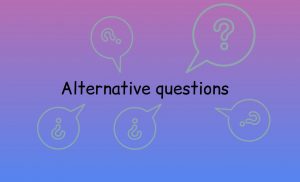
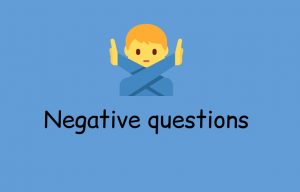
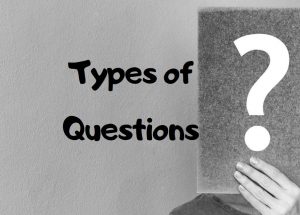


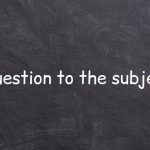


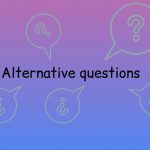
Spot on with this write-up, I truly believe that this amazing site needs a lot more attention. I’ll probably be back again to read through more, thanks for the info!
Saved as a favorite, I like your blog!